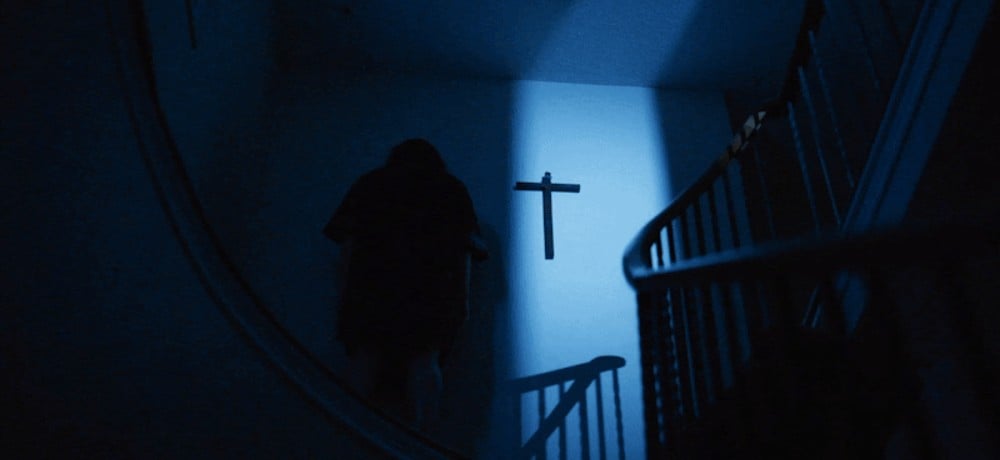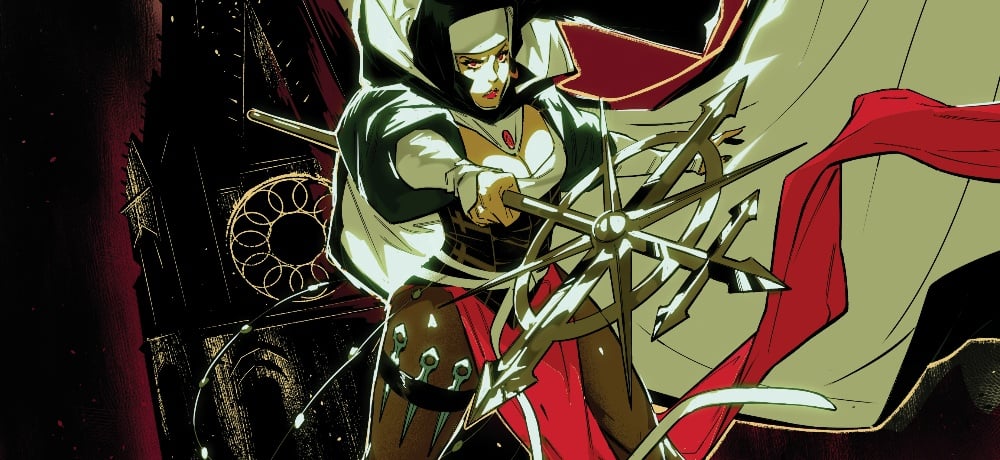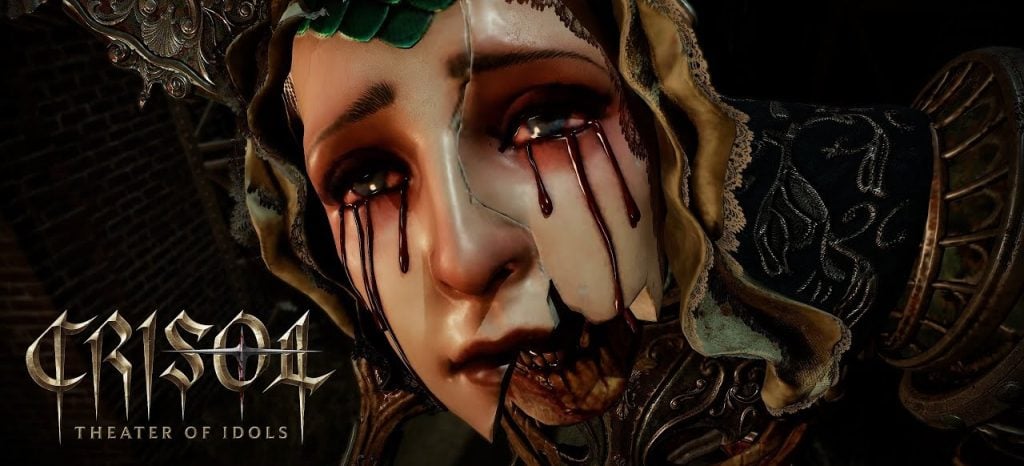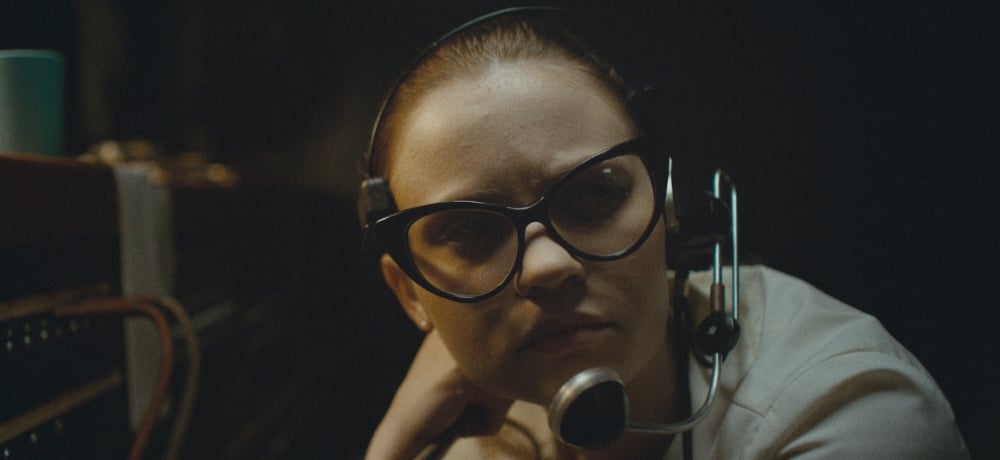






One of my favorite films that I had the pleasure of seeing at the 2019 edition of Fantastic Fest was Andrew Patterson’s The Vast of Night. A retro sci-fi talkie centered around a pair of inquisitive residents of a small town in New Mexico who happen to stumble upon a mysterious radio signal one fateful night in the late 1950s, and how everything changed afterwards, the film stars Sierra McCormick and Jake Horowitz, who were both tasked with sharing a ton of dialogue between their respective characters.
Daily Dead recently had the opportunity to speak with McCormick about her role in The Vast of Night, and she discussed why the project initially caught her eye and how she immediately fell in love with her character, Fay. McCormick also discussed her experiences collaborating with Horowitz and how Patterson’s film language made it easy for them to work together on The Vast of Night.
Currently playing select drive-in theaters around the US, The Vast of Night hits Amazon Prime on May 29th.
So great to speak with you today, Sierra, and I absolutely love this film. What were your initial reactions to the script and this project as a whole?
Sierra McCormick: When I first read the script, I was pretty floored. I read a lot of scripts and ones like this do not really come around that often, especially characters like Fay. As a woman, there just aren’t a lot of interesting, cool characters like that, and especially period pieces of that era. So, that was pretty exciting. I think my first thought when I finished reading it was, “Wow, I’m going to do everything in my power to make sure that I try my hardest to be a part of this because if I do get to, that would be so amazing.” This movie is so cool, the script was so awesome, the dialogue, and it really caught me because, at the time, I was working on my lit degree. Those big chunks of dialogue and text were super exciting, and I was looking forward to really being able to dig into and sink my teeth into everything.
It was just the very clear vision that appeared in the script without me seeing any of what Andrew’s actual vision for it was. I feel like the way it turned out, it wasn’t that surprising to me because a lot of that is so present in the script, I could visualize a lot of it before we even started shooting. It was just very vivid and descriptive, so I guess it was just super exciting because I could see how cool the movie was going to be from the start.
You mentioned those big chunks of dialogue, which I’m guessing were a little bit daunting to tackle. Can you talk about how you approached preparing for all of that?
Sierra McCormick: Well, we rehearsed the script a lot, like excessively, before the cameras ever rolled, so I think that really helped. And the way Jake and I were able to blow through a lot of that heavy dialogue with such ease was because we had practiced it quite a bit so that we were pretty comfortable on the day for the most part. I think that’s in no small part due to Andrew, because he really fostered an environment for Jake and I to really be creative and collaborate and feel really comfortable with our characters. And we really got to dig in and add our own bent on the characters as well.
And then I found out that Jake was a theatre actor and I was like, “Oh man, I’ve got to get my act together because he’s going to be able to memorize this real quick,” and I am not a theatre actor. So, that took a little time, but the dialogue flowed so naturally that even though it’s got this period slang/vernacular aspect to it that might make it a little bit different in the way you and I speak now, the way that it’s written, it’s so natural and it flows and it makes so much sense for the characters that it was a lot easier to remember and get all that dialogue down and in my head than other things I’ve done.
I had a great time chatting with him at Fantastic Fest last year, but I was wondering how your experiences were working with Andrew?
Sierra McCormick: I would describe him as an actor’s director because he really cultivated an environment where Jake and I felt comfortable to experiment and collaborate and express ourselves. I was constantly utilizing all this character work that we had both done on our own, too. Sometimes, the director might feel differently about a scene or have a whole other idea in mind, and so it’s great to collaborate and work with people in that respect who give you that kind of room to experiment. It’s always a bummer when you have all these ideas and then it just doesn’t work with what everyone else is thinking.
But Andrew just seemed to listen to what Jake and I felt about our characters and I think that right there is a really valuable skill in any filmmaker. That’s probably why a lot of the scenes between Jake and I are so effortless and natural and fun because we made it that way.
Also, I think that Andrew and I particularly just really vibed together when it came to film and how we feel about film and the films that we like. We had a film language that we could relate to each other and I think that maybe that’s the best language to communicate with someone you’re collaborating creatively with. I mean, if you heard him talk about his influences he has for this movie, none of them were the ones that people are probably thinking.
When he told me that he was going to shoot this movie, he talked about shooting one moment like in Irreversible, where the characters get away from you and you have to catch up with them. Or this other scene he wanted to shoot it like Once Upon A Time in the West, where this person’s over there and then this person’s over here. His approach just spoke to me and it just clicked. I think this film’s shorthand was why we were able to work together so efficiently and had a great time, too.